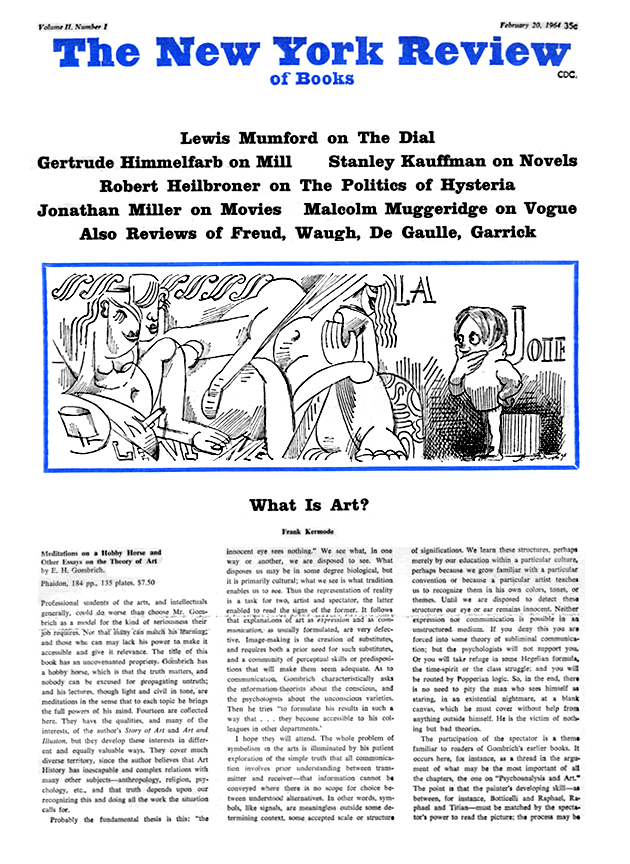In response to:
The Enlightenment from the January 23, 1964 issue
To the Editors:
I have yet to read Professor Gay’s The Party of Humanity: Essays in the French Enlightenment, reviewed by J. H. Plumb in your January 23 issue. But his critical discussion…suggests a bad habit, not confined to historians, to succumb to whims of fashion…One day the Enlightenment is the age of reason, optimism, and human autonomy, the next the “prophets of Paris” are juxtaposed with Camus—the philosopher of the absurd. Can Professor Plumb be serious?
Whatever the merits of Professor Gay’s treatment may turn out to be (and from the reviews I cannot see where he is saying anything which is new), his reviewers seem to have been carried away by the latest exercise in resuscitation. Instead of asking Mr. Gay why Rousseau was reviled by his eminent contemporaries, why Hogarth and Goya created their styles of art, why the music of Bach and Mozart was not “successful” in Paris and Vienna, why Dr. Johnson’s Rasselas, Hume’s Dialogues, and Kant’s discussion of “radical evil” in human nature were rightly regarded as revolutionary in relation to their times, they are passionately concerned to rescue the platitudes of Condorcet and Voltaire from some of the oblivion they respectfully deserve. No doubt it took some courage to be anti-Christian Establishment in the eighteenth century, and, for all time, as Professor Brinton has observed, we shall have to be grateful to the philosophes for clearing away rubbish and thus helping to set the stage for the great emancipation of mankind from ignorance and false appeals to authority whose battle cry C. P. Snow has taken up in the lovely times we live in today.
But how naive, and not only in retrospect, were these philosophes about virtually every significant topic they discussed? Hume’s Dialogues were less an attack on Christianity than on the sort of deism Voltaire loved to profess in touching moments of mystical oneness with the great order of Nature. Compared to The Legend of the Grand Inquisitor, Candide reads like an entertainment by Oscar Wilde. Nietzsche’s analysis of atheism makes Enlightenment anti-theism look silly; similarly, Kierkegaard’s analysis of Angst reduces Diderot’s psychological meanderings to the casual vexations of a man of letters; and the reflections on democracy of a Mill or a Toqueville have no counterpart of the eighteenth century philosophe tradition. As Karl Barth has pointed out in his brilliant essay on Rousseau: there was every reason for him to be castigated by the men of Reason, quite apart from personal reasons: for Rousseau clearly saw the bankruptcy of the Enlightenment dream of man saving himself from himself by virtue of education. Until historians of ideas and their critics learn to follow Kierkegaard’s injunction to become dialectical we shall continue to be subjected to an unending flood of evaluations and reevaluations of the Enlightenment signifying nothing of significance.
Geoffrey Clive
Department of Philosophy
Vanderbilt University
Nashville, Tennessee
J.H Plumb replies:
Mr. Clive’s didactic statements about the philosophes—accusing them of not recognizing radical evil in man, of being victims of shallow optimism, of being the purveyors of platitudes represents, indeed, that very attitude which Professor Gay is at pains to refute. So, the best answer to Mr. Clive is to recommend him to buy Professor Gay’s book and to read it. Not, of course, that it is likely to convince him, for the whole tenor of his letter displays his ignorance of the attitude to the history of ideas of which Professor Gay is so subtle an exponent.
This Issue
February 20, 1964


